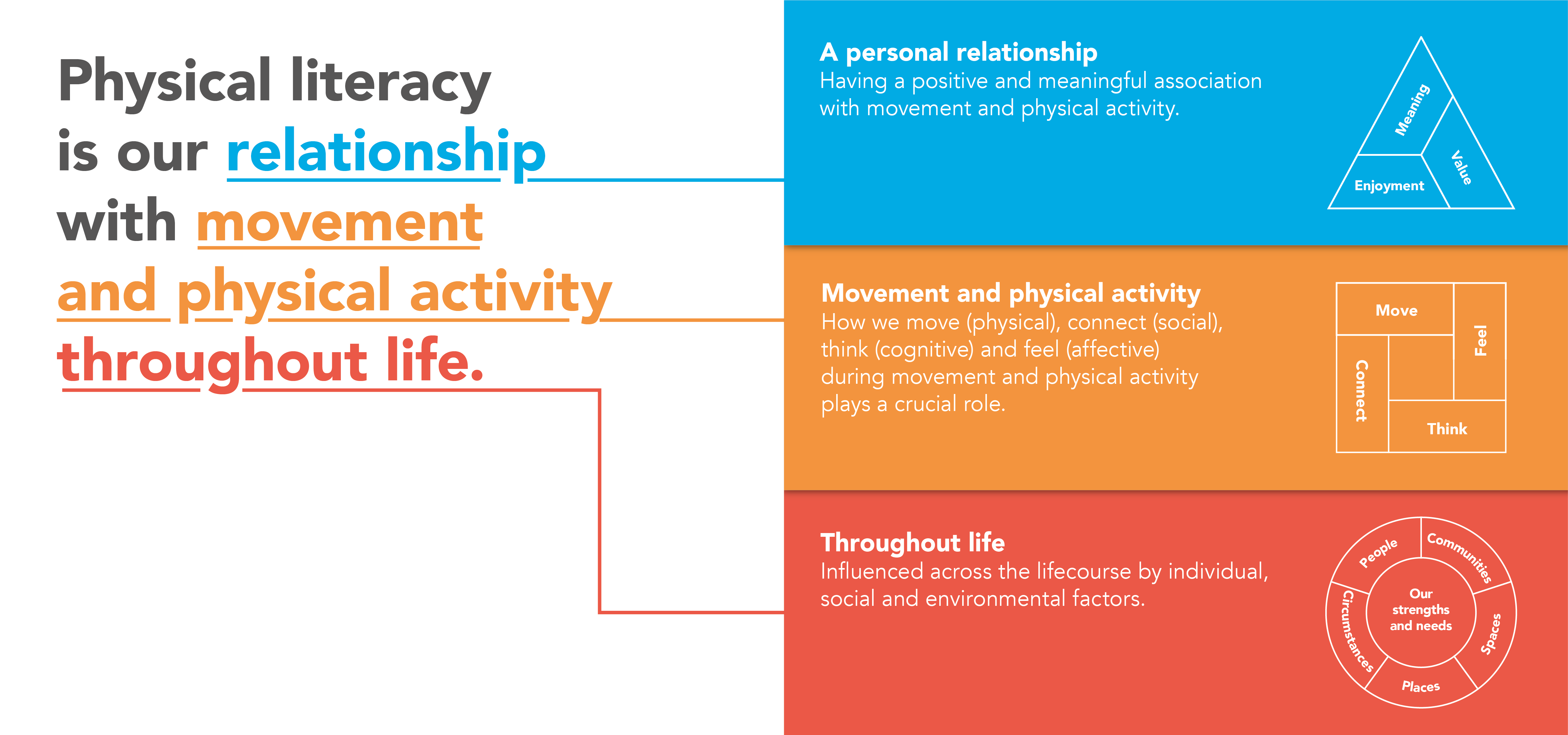
The new Physical Literacy Consensus Statement for England has been revealed at a conference in London.
More than 100 people from across the academic and sport and physical activity sectors, including representatives from the Active Partnerships National Organisation and local Active Partnerships, gathered at the Royal Society of Arts on 28 September for ‘Positive Experiences for Children and Young People: A spotlight on Physical Literacy’.
The event represented a culmination of 18 months’ work which has been supported across the Active Partnerships network and this event explored the importance of physical literacy in providing positive experiences of movement and physical activity for all – a key priority in Sport England’s Uniting the Movement strategy.
The Physical Literacy Consensus Statement for England has been developed to facilitate a shared understanding of physical literacy for those working in the sport, education, physical activity, recreation, play, health and youth sectors.
The statement offers a broad overview of physical literacy, why it matters and how it can be developed and supported.
Developing consensus on the term physical literacy has been a priority, as understanding what impacts people’s relationship with movement and physical activity throughout life will enable those working in the sector to ensure their offer is as appealing as possible.
Helen Pring, Relationships Director for the Active Partnerships National Organisation, said: “It was fantastic to be involved in the working group for the development of the Physical Literacy Consensus Statement. This project has been a collaborative effort involving organisations from across the sport and physical activity sector.
“This work has created considerable momentum and I look forward to witnessing the next steps as we move forward in embedding the concept of physical literacy into the sector’s structures and systems.”
Tim Hollingsworth, Sport England’s CEO, believes the new consensus statement will be important in helping deliver on the ambitions of the organisation’s long-term strategy.
He said: “In Uniting the Movement, we said that every child and young person has the right to be active, to benefit from being active in a safe, positive and trusted environment, and to have an equal chance to achieve their potential,” he said.
“We must ensure children and young people have positive experiences of sport and physical activity that are fun, inclusive and help them develop.
“The new Physical Literacy Consensus Statement for England provides a framework to help us explore this in greater depth and is relevant for all ages and everyone working to improve the activity levels and health of our nation.
“It must be seen as one of the first steps in our efforts to promote positive experiences and lifelong participation for all children and young people, but particularly for those who face the greatest inequalities.
“Putting the concept of physical literacy into practice is now our collective task.”